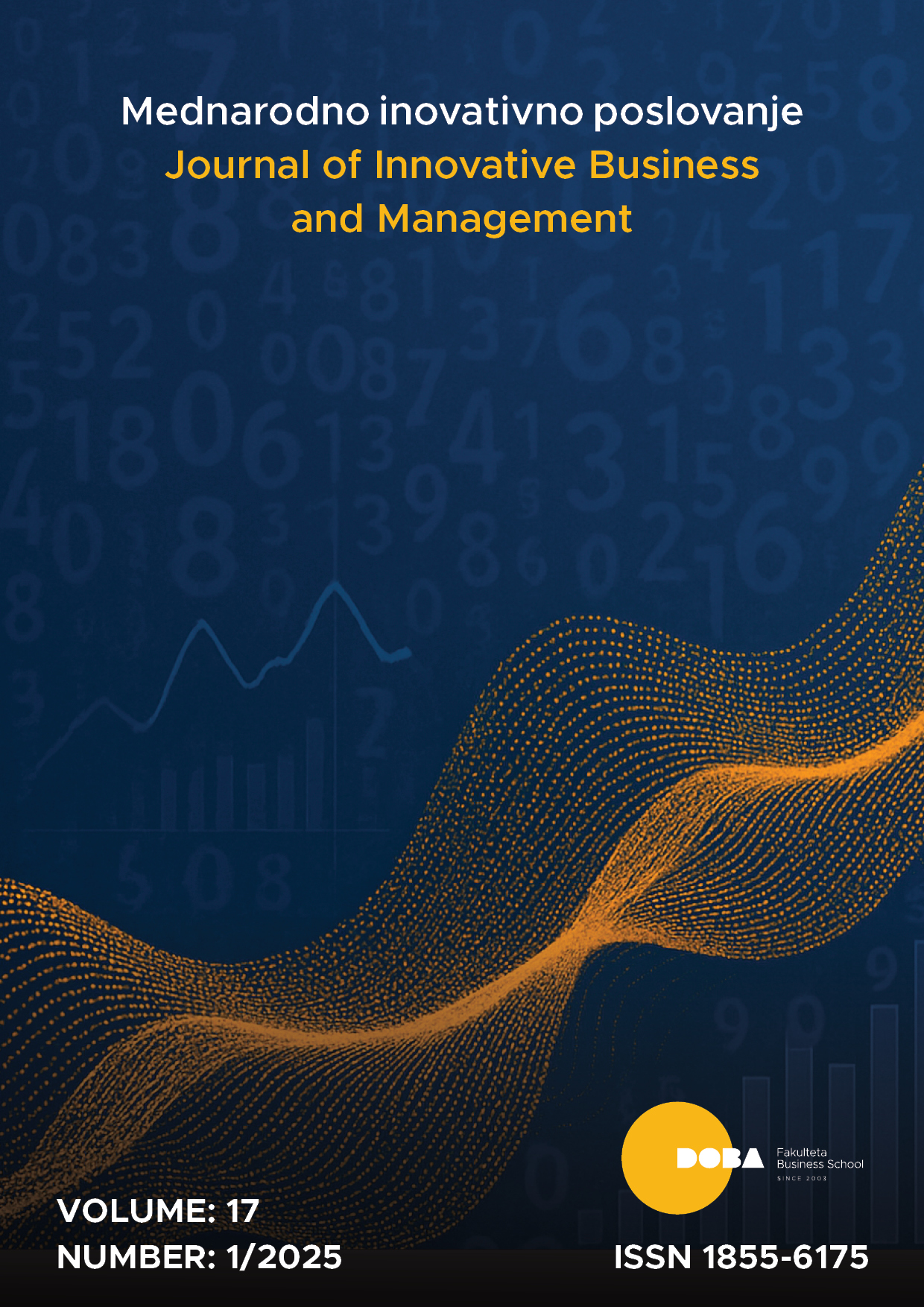Trust in the age of artificial intelligence: a framework for privacy protection in personalised marketing
DOI:
https://doi.org/10.32015/JIBM.2025.17.1.9Keywords:
first-party data, personalization, consumer trust, privacy-enhancing technologies, artificial intelligenceAbstract
Understanding the role of first-party data and AI is crucial in today’s personalized, data-driven economy. First-party data—collected directly from users with consent—enables effective personalization but also raises ethical and legal concerns. This conceptual paper reviews academic literature on personalization, privacy, and AI ethics in marketing, supported by 2025 iPROM research on Slovenian companies' use of consumer data in digital advertising. A conceptual framework is developed around trust, linking consumer perceptions of trust, fairness, and autonomy. It shows how privacy technologies, quality data management, and regulatory compliance contribute to ethical personalization. The research asks: How does data management maturity impact the perceived ethics of AI-driven marketing personalization? The paper proposes research directions and encourages responsible, consumer-centric strategies that align personalization with privacy and regulation.
References
Chen, H., Ren, X., He, L., & Huang, J. (2024, October). Editorial: AI as intelligent technology and agent to understand and be understood by human minds. Frontiers in Psychology. https://doi.org/10.3389/fpsyg.2024.1461881
Da Bormida, M. (2022). The big data world: Benefits, threats and ethical challenges. In D. Wright & M. Friedewald (Eds.), Ethical issues in covert, security and surveillance research (Vol. 8, pp. 71–91). Emerald Publishing. https://doi.org/10.1108/S2398-601820210000008007
Elly, B. (2025). Ethical implications of data collection in personalized marketing. ResearchGate. https://www.researchgate.net/publication/388514697_Ethical_Implications_of_Data_Collection_in_Personalized_Marketing
EY. (2023). Six steps to confidently manage data privacy in the age of AI. Ernst & Young Global. https://www.ey.com/en_pl/insights/law/six-steps-to-confidently-manage-data-privacy-in-the-age-of-ai
Davenport, T. H., Guha, A., Grewal, D., & Bressgott, T. (2020). How artificial intelligence will change the future of marketing. Journal of the Academy of Marketing Science, 48(1), 24–42. https://link.springer.com/content/pdf/10.1007/s11747-019-00696-0.pdf
Gao, B., Wang, Y., Xie, H., & Hu, Y. (2023). Artificial intelligence in advertising: Advancements, challenges, and ethical considerations in targeting, personalization, content creation, and ad optimization. SAGE Open, 13(4), 1–20. https://doi.org/10.1177/21582440231210759
Google, IPSOS. (2020). Privacy by design: exceeding customer expectations. https://www.thinkwithgoogle.com/_qs/documents/12053/Google_Privacy_Report_ebook_FA_1.pdf
iPROM. (2025). Protection of companies' proprietary data and the transition to first-party data strategies in digital advertising. iPROM Labs, Research Report. https://iprom.si/blog/ipromova-raziskava-zascita-lastnih-podatkov-in-pomen-za-ucnkovitost-oglasevalskih-strategij/
iPROM. (2025). Real-time creative. https://iprom.si/produkti/iprom-real-time-creative/
Kennedy, H., Ditchfield, H., Oman, S., & Bates, J. (2024). How people connect fairness and equity when they talk about data uses. Big Data & Society. https://doi.org/10.1177/20539517241303162
Martin, K. D., & Palmatier, R. W. (2020). Data privacy in retail. Journal of Retailing, 96(4), 474–489. https://pmc.ncbi.nlm.nih.gov/articles/PMC7505556/
Nwobodo, L. K. (2025). The impacts of big data analytics and artificial intelligence on marketing. Global Journal of Economics and Financial Research. https://www.researchgate.net/publication/388089017_The_Impacts_of_Big_Data_Analytics_and_Artificial_Intelligence_on_Marketing_Strategies
Palmatier, R. W., & Martin, K. D. (2019). The ethicality of customer data monetization: Issues and frameworks. Journal of Business Research, 100, 254–263. https://www.researchgate.net/publication/305822708_Data_Privacy_Effects_on_Customer_and_Firm_Performance
Perko, I. (2023). Data sharing concepts: A viable system model diagnosis. Kybernetes, 52(9), 2976–2991. https://doi.org/10.1108/K-04-2022-0575
Romansky, R. P., & Noninska, I. (2020). Challenges of the digital age for privacy and personal data protection. Mathematical Biosciences and Engineering, 17(5), 5288–5303. https://doi.org/10.3934/mbe.2020286
Quach, S., Thaichon, P., Martin, K. D., Iaven, S., & Palmatier, R. W. (2022). Digital technologies: Tensions in privacy and data. Journal of the Academy of Marketing Science, 50(6), 1299–1323. https://doi.org/10.1007/s11747-022-00845-y
Schmarzo, B. (2023, July 19). Embracing data citizenship. Turning Data into Wisdom. https://www.turningdataintowisdom.com/embracing-data-citizenship/
Shopify. (2024). First-party data and privacy-centric marketing. Shopify White Paper. https://www.shopify.com/enterprise/blog/first-party-data
World Economic Forum. (2025). Digital trust decision-making for trustworthy technology. https://initiatives.weforum.org/digital-trust/home
Xu, T., Shi, H., Shi, Y., & You, J. (2024). From data to data asset: Conceptual evolution and strategic imperatives in the digital economy era. Asia Pacific Journal of Innovation and Entrepreneurship, 18(1), 2–20. https://doi.org/10.1108/APJIE-10-2023-0195
Downloads
Published
Issue
Section
License
Copyright (c) 2025 Maja Gorjanc

This work is licensed under a Creative Commons Attribution-NonCommercial 4.0 International License.
The authors retain rights under the Creative Commons Attribution-ShareAlike 4.0 International CC BY-SA 4.0. Authors assign copyright or license the publication rights in their articles, including abstracts, to MIP=JIBM. This enables us to ensure full copyright protection and to disseminate the article, and of course MIP=JIBM, to the widest possible readership in electronic format. Authors are themselves responsible for obtaining permission to reproduce copyright material from other sources.















